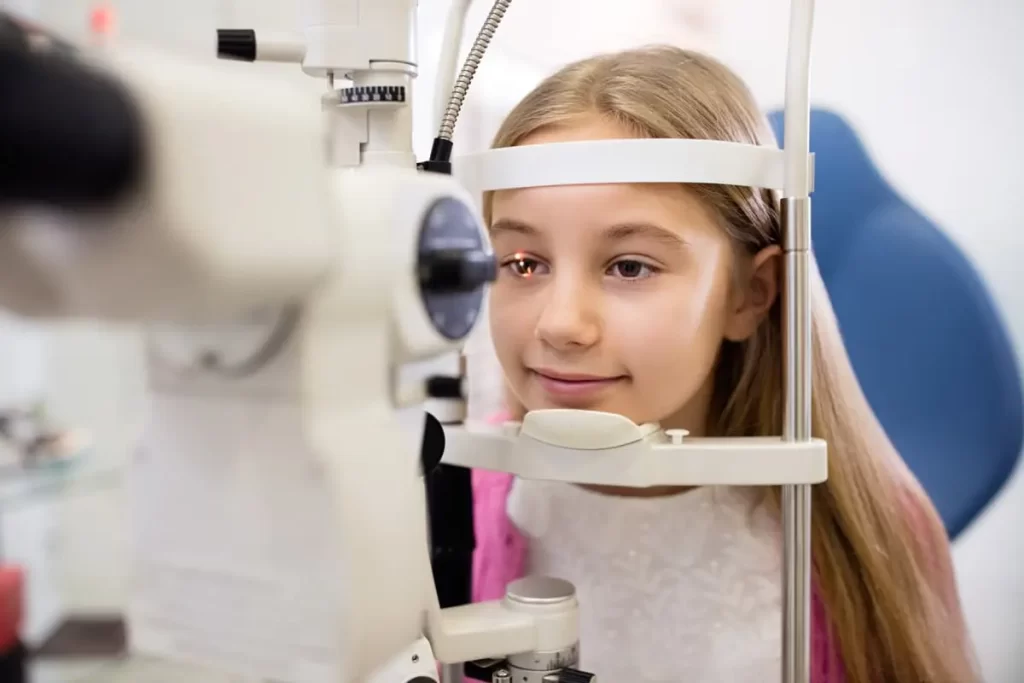Exploring the Multifaceted Aspects of Vision: Beyond Basic Clarity
It is a common misconception that an optometrist is solely responsible for prescribing corrective eyewear or addressing issues such as dry and fatigued eyes. However, it is vital to recognise that numerous visual challenges can manifest in ways that go beyond simply experiencing blurry vision. Many individuals may appear to have healthy eyes yet struggle with reading comprehension, stagnating academic progress, or enduring noticeable declines in concentration and focus throughout their daily activities. Recognising these subtle yet significant indicators is crucial to addressing underlying vision issues that might otherwise remain unnoticed and untreated, thereby enhancing overall quality of life.
At Eyes by Design, we specialise in behavioural optometry, a sophisticated clinical approach that extends beyond merely ensuring clear vision. This method prioritises the entire visual system and acknowledges its crucial role in enhancing learning performance and facilitating everyday activities. We understand that vision is not merely a static state but a dynamic interplay among the eyes, brain, and body, working together to create a seamless and effective visual experience that supports various functional tasks.

Understanding the Core Principles and Advantages of Behavioural Optometry
Behavioural optometry, often referred to as functional or developmental optometry, is grounded in the understanding that clear vision serves merely as the foundation for a comprehensive visual experience. For vision to provide genuine advantages, the eyes must operate efficiently, track accurately, adjust focus seamlessly, and convey information to the brain in a manner that supports movement, posture, memory, and learning processes. This approach emphasises the interconnectedness of various visual functions and their impact on an individual’s overall performance.
This holistic approach encompasses several vital components:
- Effortless tracking across books, pages, and screens
- Rapid and reliable focusing across varying distances
- Effective coordination between both eyes to ensure optimal performance
- Enhanced spatial awareness and body control for improved functioning
- Accurate visual processing during real-time activities
A behavioural optometrist conducts comprehensive evaluations of these interconnected systems. The primary aim is not only to determine whether you can see clearly but also to assess if your visual system is functioning optimally to enhance daily tasks and social interactions effectively.

Recognising the Primary Indicators That Visual Challenges May Be Affecting Your Life
1. Your Child Faces Challenges with Reading Despite Being Articulate and Intelligent
A child who exhibits intelligence and eloquence yet struggles with reading might not necessarily have a learning disability. Instead, they could be experiencing visual dysfunction. Symptoms such as skipping lines, using fingers to follow along, or reporting that words appear to blur or shift are clear indicators that warrant further investigation. We perform thorough assessments of how the eyes function during prolonged near tasks like reading, where even minor inefficiencies often escape detection during standard testing protocols.
2. Experiencing Frequent Headaches or Eye Strain After Extended Screen Time
Many individuals tend to overlook digital eye strain as a commonplace issue; however, symptoms such as pressure behind the eyes, end-of-day headaches, or difficulties focusing can indicate a breakdown in visual coordination. Through our detailed behavioural assessments, we can evaluate whether the muscles responsible for eye alignment and focus are under excessive strain due to the demands of screen-based activities, allowing us to address these concerns effectively.
3. Exhibiting Poor Coordination, Clumsiness, or Reluctance to Engage in Sports
Vision is pivotal in facilitating movement and coordination. If a child appears to shy away from ball sports, struggles to catch objects, or has difficulty maintaining balance, these behaviours may relate to how their brain interprets visual-spatial cues. Such patterns often reflect challenges in visual-motor integration rather than a mere lack of athletic ability, highlighting the importance of addressing underlying visual issues.
4. An Articulate Child Who Struggles with Written Assignments
Many children who possess natural curiosity and verbal expressiveness may underperform academically due to excessive effort required to track and comprehend written material. Behaviours such as fidgeting, daydreaming, slow task completion, or resistance to reading could stem from unrecognised functional vision issues, rather than simple disinterest or defiance. Identifying these challenges is essential for providing appropriate support.
5. Ongoing Challenges Despite Wearing Corrective Glasses
Some patients continue to face difficulties even after multiple adjustments to their prescription glasses. They might struggle to relax their eyes, experience depth perception issues, or never feel visually comfortable. This often indicates underlying problems with eye teaming or neurological processing rather than simple refractive errors, necessitating a more comprehensive examination to uncover the root causes.

What to Expect When Preparing for a Comprehensive Behavioural Optometry Evaluation
At Eyes By Design, we utilise a thorough, systematic, and highly personalised approach to our assessments. We meticulously analyse how your eyes move, collaborate, and respond to various demands placed upon them. Our primary focus areas include:
- Control and precision of eye movements to ensure clarity
- Flexibility and stamina in focusing to mitigate strain
- Alignment and coordination of the eyes for optimal performance
- Visual memory and cognitive load management strategies to enhance learning
- Coordination and spatial reasoning abilities to support physical activities
Based on our findings, we develop a personalised plan that may encompass therapeutic lenses, vision therapy, or practical modifications to your environment, whether at school or in the workplace, ensuring a tailored approach that enhances your visual experience and overall functionality in daily life.
Understanding the Impact of Vision on Daily Life and Learning Efficiency
If you or your child are encountering daily challenges that standard eye examinations cannot clarify, a behavioural optometry assessment may uncover the underlying factors contributing to these frustrations. This process extends beyond merely aiming for clearer vision; it encompasses the pursuit of more comfortable seeing, enhanced confidence in movement, and improved learning efficiency, all of which are vital for overall well-being.
At Eyes By Design in Kincumber, we are committed to assisting individuals in realising the full potential of their vision through comprehensive behavioural care. Our holistic approach aims to address the intricate nature of vision and its profound impact on the overall quality of life, ensuring that each person's unique visual needs are met.
This article aims to deepen understanding and knowledge concerning general eye health topics.
It should not substitute professional advice, diagnosis, or treatment.
Always consult your healthcare professional before integrating this information into your health regimen.

Dr Nicholas Altuneg
For over two decades, my greatest passion has revolved around empowering individuals of all ages to lead enriched lives through improved vision. At Eyes by Design, we assert that vision encompasses far more than the ability to see clearly or read small letters from a distance; it profoundly influences your perceptions and responses throughout each moment of the day.
Discover more about Dr Nick
The Article: Signs You Need a Behavioural Optometrist first appeared on https://writebuff.com
The Article Behavioural Optometrist: Key Signs You Shouldn’t Ignore Was Found On https://limitsofstrategy.com
The Article Behavioural Optometrist: Essential Signs to Recognise found first on https://electroquench.com

